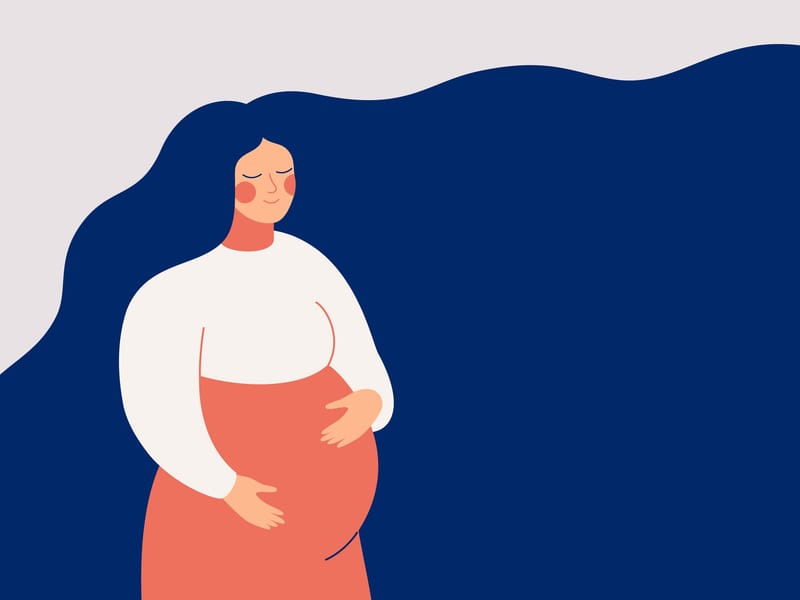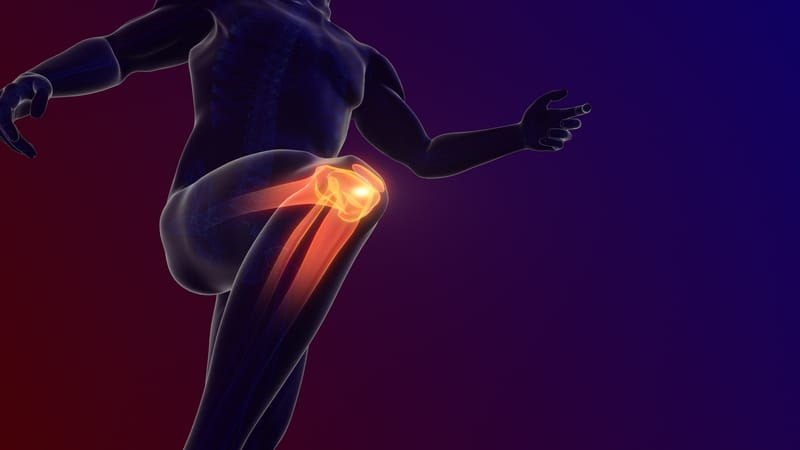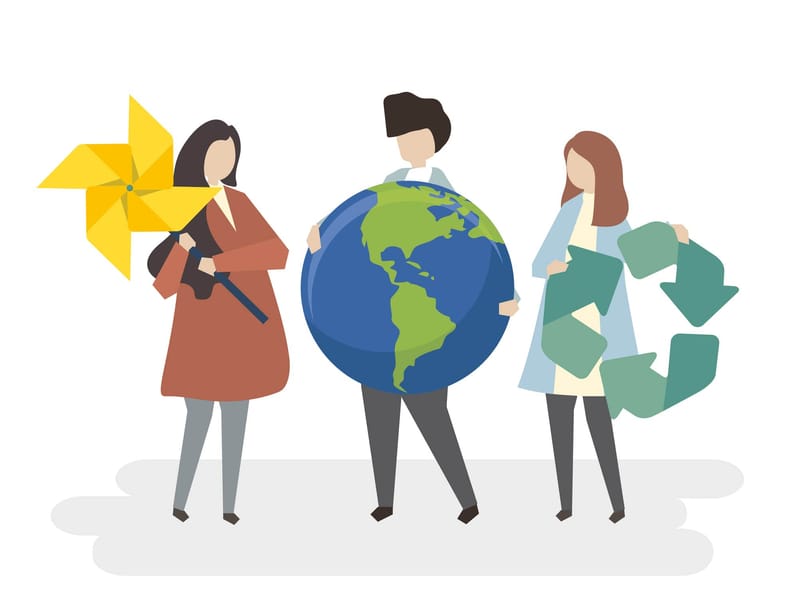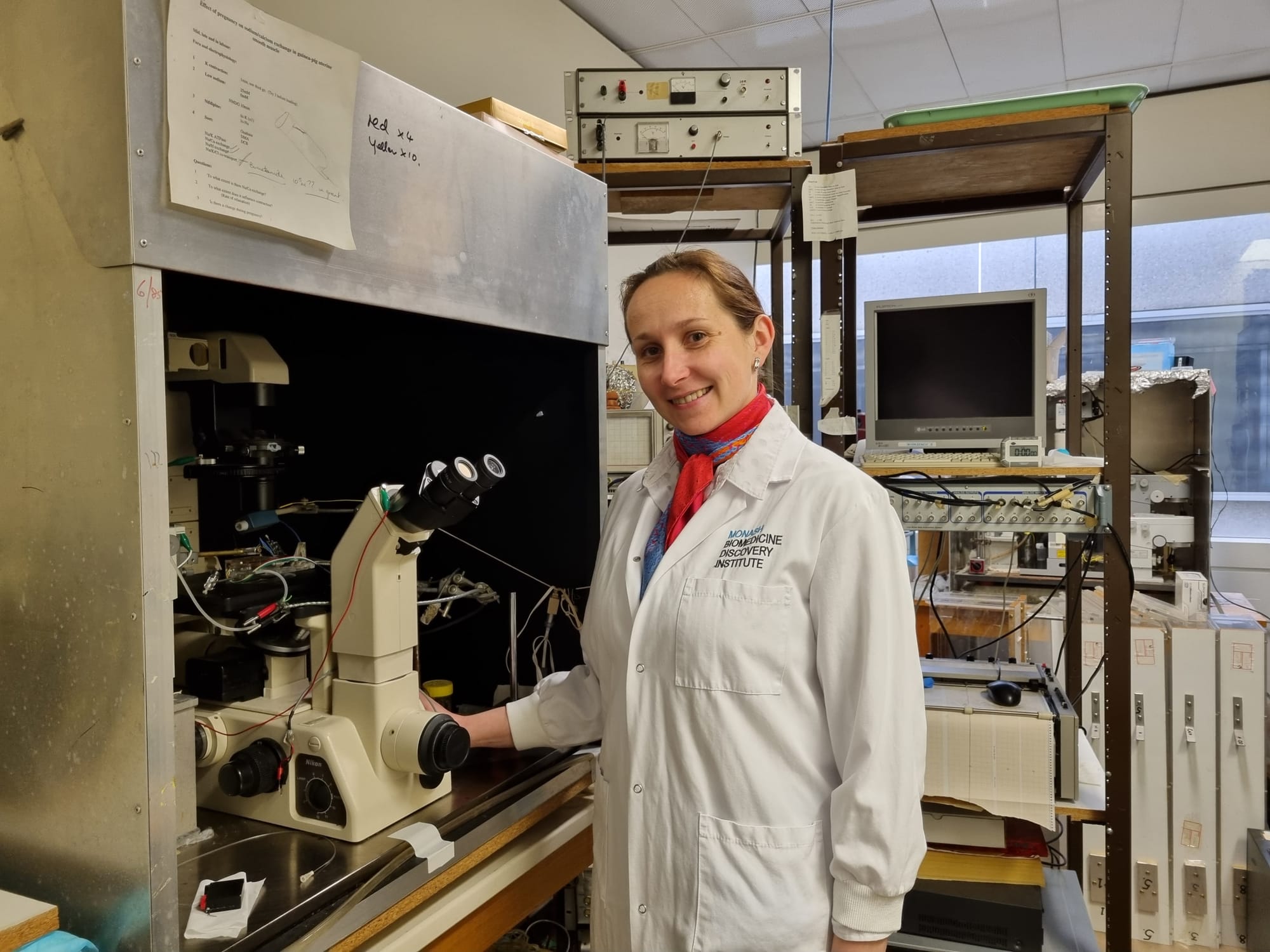
Many female scientists face the same career hurdles in their late 20s and 30s – such as maternity leave or, more recently, the COVID pandemic.
But, in 2022, Dr Olesia Moroz faced a much bigger barrier when Russia invaded Ukraine and started bombing Kyiv, where she’s a researcher at the Department of Biophysics and Neurobiology at the Taras Shevchenko National University of Kyiv (KNU).
“Scientific experiments often take hours if not days, and you need to be at the lab bench almost full-time,” she says. “When air raid sirens start, you just have to abandon your experiments and start again the next day.”
Dr Moroz is working at the Department of Physiology at Monash University on a two-month Visiting Researcher Grant from the Ukraine-Australia Research Fund by the Australian Academy of Science.
Dr Moroz was originally inspired by, and encouraged to visit, Monash University in 2023 following a guest lecture at KNU by Associate Professor Marianne Tare, Director of Monash Rural Health in Churchill, and a cardiovascular physiology researcher.
Dr Moroz spent a month in the lab learning new techniques and generating preliminary data used for the successful grant application.
The grant provides practical support to enable the continuation of research by Ukrainian scientists impacted by the war with Russia.
A sharing of expertise
Dr Moroz is extremely grateful for the opportunity to return to Monash University and the world-class facilities to continue the research launched in July-August 2023.
She’s working in the laboratory of Emeritus Professor Helena Parkington, a world leader in the study of uterine smooth muscle.
Professor Parkington has shared her expertise and skills in the method of the simultaneous recording of membrane potential and tension of the isolated uterine strips.
Dr Moroz is investigating the role of particular ion channels in the regulation of uterine contractility to unlock the mechanistic mysteries of dysfunctional labour contractions.
“These recordings involve a very difficult technique, and few people in the world are able to do it,” explains Associate Professor Tare.
The information derived from these experiments provide unique insights into the mechanisms that regulate smooth muscle contraction and relaxation.
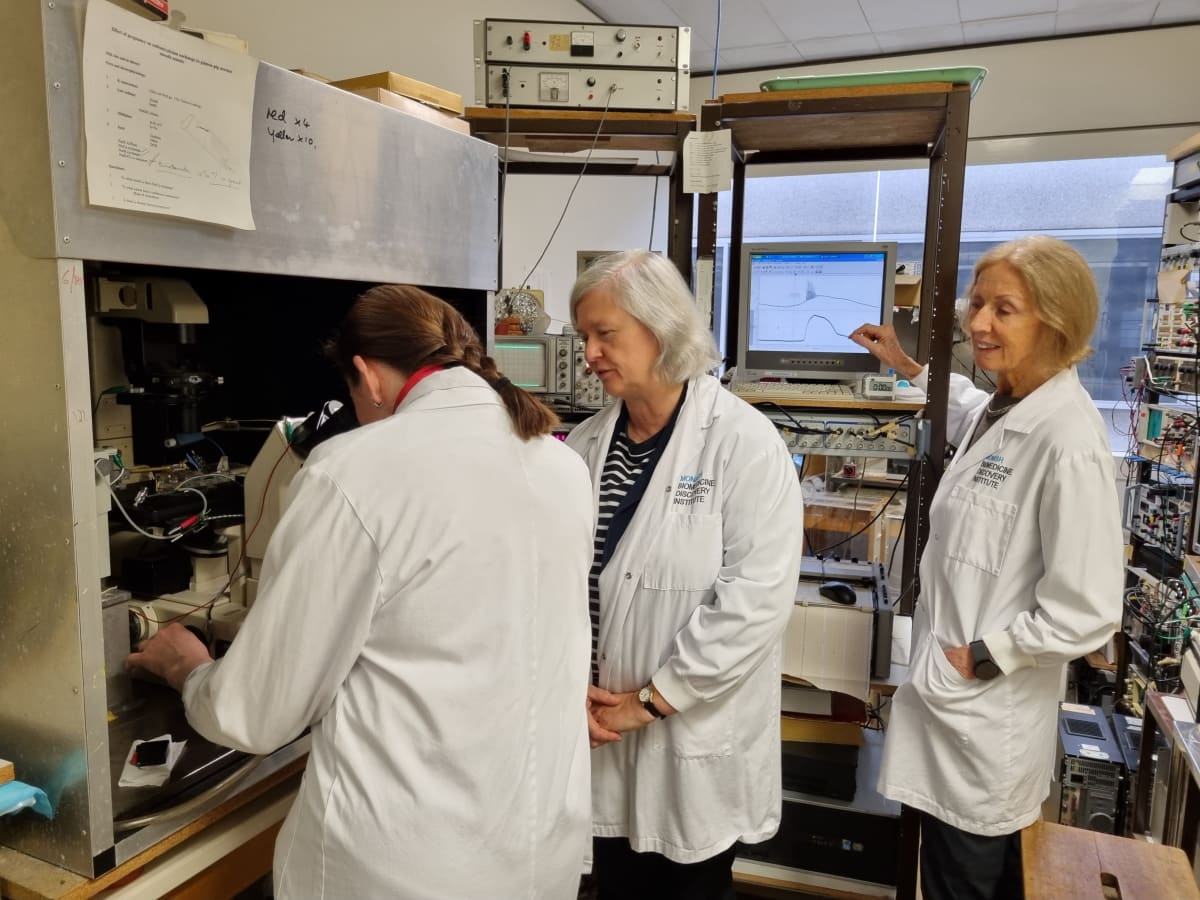
Attack threat undermines work
Associate Professor Tare and Emeritus Professor Helena Parkington are experts in this area. The pair offered to train and mentor Dr Moroz in these techniques so she can continue this research in her home lab in Ukraine, and continue the collaboration and training of the next generation of young Ukrainian scientists.
Experimental work Dr Moroz says research funding in Ukraine has decreased, and the conditions for experimental work became dangerous and fractured due to the constant threat of Russian missile attacks.
“When air raid sirens start, you just have to abandon your experiments and start again the next day.”
During this visit to Monash, her three children are being cared for by both grandmothers, and her husband has been engaged in the war ever since Russia invaded.
“He’s a historian, so he tries to continue his research when he can, even there,” she said.
The family has seen him just four times since the war began. He gets twice-yearly breaks of seven to 10 days. “One of these trips coincided with my visit to Australia, so I’m missing that time with him,” she says.
The family has moved out of Kyiv, but the new home base was recently bombed by the Russians. “There is no safe place in Ukraine at the moment."
Grateful for community support
In Australia, Dr Moroz has been embraced by the strong local Ukrainian community and her Monash colleagues.
At times, Dr Moroz feels scared for herself and her family.
“There is a risk, as an academic and teacher, that we will also be targeted,” she says.
She’s considered leaving Ukraine, but for the moment she continues to work at the university in Kyiv, but is grateful for the support from Australia’s scientific community to enable her research to keep going.
“The solidarity of academia with those who face obstacles is probably the same kind of support as the supply of humanitarian aid for civilians or weapons for the army to protect the country.”
Dr Moroz hopes to bring her family to visit Melbourne, when and if things quieten down.
“I love this city, and Monash University has been a haven where I can work without the fear of bombings.”


